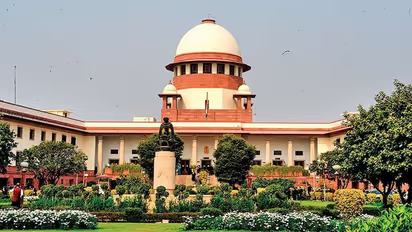Bilkis Bano case: Supreme Court agrees to constitute bench to hear pleas challenging release of 11 convicts

Synopsis
In its May 13, 2022 order, the apex court had asked the state government to consider the plea of a convict for premature release in terms of its policy of July 9, 1992 which was applicable on the date of conviction and decide it within a period of two months.
The Supreme Court on Wednesday (March 22) agreed to constitute a special bench to hear a plea by Bilkis Bano, who was gang-raped during the 2002 Gujarat riots, against the remission of sentence of 11 convicts in the case.
A bench comprising of Chief Justice DY Chandrachud and justices PS Narasimha and JB Pardiwala assured Bano, represented through her lawyer Shobha Gupta, that the new bench will be formed. Gupta mentioned the matter for urgent hearing and said that a new bench needs to be constituted.
Also read: Delhi Budget 2023 key highlights: FM Kailash Gahlot lauds zero-tolerance policy of Delhi govt
"I will have a bench constituted. Will look at it this evening," the CJI said. Earlier, on January 24, the hearing on Bano's plea challenging the remission of sentence of 11 convicts in the gang-rape case by the Gujarat government could not be held in the top court as the judges concerned were hearing a matter related to passive euthanasia as part of a five-judge Constitution bench.
Besides the plea challenging the release of the convicts, the gang-rape survivor had also filed a separate petition seeking a review of the apex court's May 13, 2022 order on a plea by a convict. Seven members of Bilkis Bano's family were also killed during the 2002 Gujarat riots.
Also read: Amritpal Singh manhunt enters day 5, Uttarakhand Police keeps close watch on India-Nepal border
In its May 13, 2022 order, the apex court had asked the state government to consider the plea of a convict for premature release in terms of its policy of July 9, 1992 which was applicable on the date of conviction and decide it within a period of two months.
All 11 convicts were granted remission by the Gujarat government and released on August 15, last year. Bano's review plea against the May 13, 2022 order, however, was dismissed by the top court in December last year.
(With inputs from PTI)
Stay updated with the Breaking News Today and Latest News from across India and around the world. Get real-time updates, in-depth analysis, and comprehensive coverage of India News, World News, Indian Defence News, Kerala News, and Karnataka News. From politics to current affairs, follow every major story as it unfolds. Get real-time updates from IMD on major cities weather forecasts, including Rain alerts, Cyclone warnings, and temperature trends. Download the Asianet News Official App from the Android Play Store and iPhone App Store for accurate and timely news updates anytime, anywhere.